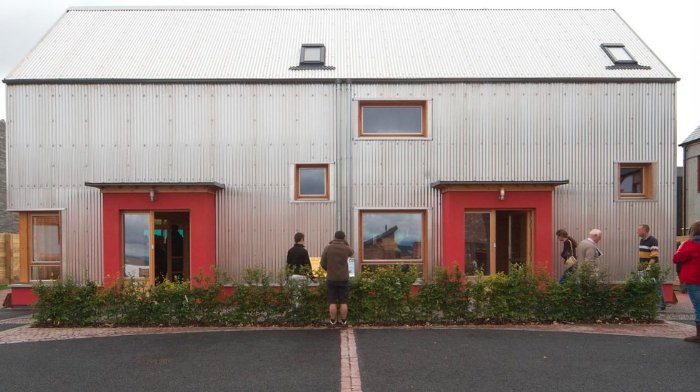A recent report has revealed that three-quarters of social housing in Scotland does not meet the required energy efficiency standards. This alarming statistic highlights the urgent need for improvements in the housing sector to ensure that homes are both environmentally sustainable and cost-effective for residents. The Scottish Government has been urged to take immediate action to address this issue, which has significant implications for both the environment and the well-being of tenants.
The Extent of the Problem
The report indicates that a staggering 75% of social housing in Scotland falls short of the energy efficiency standards set by the government. This means that a large number of homes are not adequately insulated, leading to higher energy bills for residents and increased carbon emissions. The lack of energy efficiency in these homes is a major concern, especially as the cost of living continues to rise.
Many tenants in social housing are already struggling with high energy costs, and the inefficiency of their homes only exacerbates this problem. The Scottish Government has set ambitious targets for reducing carbon emissions, but the current state of social housing presents a significant barrier to achieving these goals. Immediate and substantial investment is needed to upgrade these homes and bring them up to standard.

Government Response and Initiatives
In response to the report, the Scottish Government has announced a series of initiatives aimed at improving the energy efficiency of social housing. These include grants and funding for local authorities and housing associations to carry out necessary upgrades. The government has also pledged to work closely with stakeholders to develop a comprehensive strategy for addressing the issue.
However, critics argue that these measures are not enough and that more needs to be done to ensure that all social housing meets the required standards. They point out that previous initiatives have fallen short and that a more robust and sustained effort is needed. The government is under pressure to demonstrate its commitment to tackling this issue and to provide clear timelines and targets for improvement.
Impact on Tenants and the Environment
The lack of energy efficiency in social housing has a direct impact on tenants, many of whom are already facing financial difficulties. High energy bills can lead to fuel poverty, where households are unable to afford to heat their homes adequately. This can have serious consequences for health and well-being, particularly for vulnerable groups such as the elderly and those with pre-existing health conditions.
Improving the energy efficiency of social housing is not only crucial for reducing energy costs for tenants but also for meeting Scotland’s environmental targets. Upgrading homes to be more energy-efficient will significantly reduce carbon emissions, contributing to the fight against climate change. It is essential that the government takes decisive action to address this issue and ensure that all social housing in Scotland is fit for the future.


















